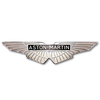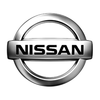diagnostic equipment and tools Parts & Spares
We have a wealth of choice for different diagnostic equipment and tools car parts for your car,
browse our massive selection of quality affordable dealership quality new and used diagnostic equipment and tools parts.
Select from the categories below to start to search for the best parts for your car today..
diagnostic equipment and tools parts
Here are some suggested diagnostic equipment and tools parts, click to view our range.
Introduction to Diagnostic Equipment and Tools
In the world of car maintenance and repair, diagnostic equipment and tools play a crucial role in identifying and solving issues with your vehicle. Whether you are a professional mechanic or a car enthusiast who loves to tinker with their vehicle, having the right diagnostic tools can make a world of difference in diagnosing and fixing problems.
Table of Contents
- Why Diagnostic Equipment and Tools Matter
- Common Diagnostic Equipment and Tools
- When Things Go Wrong
- The Importance of Repairing or Upgrading
- The Consequences of Neglecting Diagnostic Issues
- Determining Faulty Parts
Why Diagnostic Equipment and Tools Matter
Diagnostic equipment and tools are designed to help identify malfunctions and potential problems within a vehicle. These tools use advanced technology to gather data from various systems in the car, allowing mechanics and car owners to pinpoint exactly what is going wrong.
Without proper diagnostic equipment and tools, troubleshooting car issues becomes a tedious and time-consuming task. These tools not only save time but also help prevent unnecessary and costly repairs by accurately pinpointing the source of the problem, leading to a more efficient repair process.
Common Diagnostic Equipment and Tools
In the market, you will find a variety of diagnostic equipment and tools that cater to different car systems, such as engine diagnostics, electrical system diagnostics, emission diagnostics, and more:
- Code Readers: These handheld devices are used to read and clear trouble codes stored in the car's computer system and provide basic information about the issue.
- Scan Tools: Similar to code readers, scan tools offer more advanced features, including live data streaming, enabling a more thorough analysis of the vehicle.
- Multimeters: These tools are used to measure electrical signals, voltage, resistance, and continuity within the car's electrical system.
- OBD2 Scanners: OBD2 stands for On-Board Diagnostics, and these scanners can provide detailed information about the car's performance, emissions, and other system data.
- Fuel Pressure Testers: These tools are used to measure the fuel pressure in the system and identify any potential fuel delivery issues.
- Compression Testers: A compression tester helps determine the health of the engine by measuring the compression within each cylinder.
When Things Go Wrong
Different parts of your car can malfunction or fail due to wear and tear or other factors. Diagnostic equipment and tools are essential for identifying the underlying cause of these issues. For example, a faulty oxygen sensor can lead to poor fuel economy, while a malfunctioning ignition coil can cause misfires and engine performance problems.
The Importance of Repairing or Upgrading
When diagnostic equipment detects a faulty part or system, it is crucial to address the issue promptly. Ignoring or neglecting the problem can result in further damage to other components or systems in your car. Additionally, unresolved issues can negatively impact fuel efficiency, emissions, and overall performance.
On the other hand, upgrading certain parts or systems can enhance your vehicle's performance, efficiency, and overall driving experience. For instance, replacing outdated spark plugs with high-performance ones can improve fuel combustion and power output.
The Consequences of Neglecting Diagnostic Issues
If diagnostic issues are neglected or left un-repaired, they can lead to a range of problems. Ignoring a malfunctioning fuel pump, for example, can result in fuel starvation, causing the engine to run lean or stall. Neglected electrical issues can lead to erratic behavior in critical systems like the engine control unit (ECU), leading to complete breakdowns or unsafe driving conditions.
Determining Faulty Parts
When diagnosing a problem, it is essential to check the specific part or system that is causing the issue. This can be done through a combination of diagnostic tools, visual inspections, and testing procedures. Understanding the symptoms and consulting the vehicle's service manual can help in narrowing down the faulty component.
For example, if you are experiencing issues with your car's starting or ignition system, the fault could lie in the starter motor, ignition switch, or battery. Using diagnostic equipment like multimeters and code readers can help diagnose which part is causing the problem.
Conclusion
Diagnostic equipment and tools are invaluable in identifying and resolving car issues efficiently. Investing in reliable diagnostic tools and using them correctly can save you time, money, and potentially prevent further damage to your vehicle. Regular diagnostics and addressing any detected issues promptly can help ensure your car runs smoothly, performs optimally, and remains reliable for years to come.
Tips for Purchasing Diagnostic Equipment and Tools for Your Car
Introduction
Having the right diagnostic equipment and tools is essential for effectively maintaining and troubleshooting your car. Whether you are a professional mechanic or a car enthusiast, selecting the correct equipment and tools can save you time, money, and frustration. In this article, we will guide you on how to purchase diagnostic equipment that meets your specific needs.
Size and Type
When purchasing diagnostic equipment and tools, the first consideration is selecting the right size and type for your car. Different car models and brands may have specific requirements, so it is crucial to consult your car's manual or do some research online. Common diagnostic tools can include code readers, OBD scanners, multimeters, and oscilloscopes. Ensure that the equipment you choose is compatible with your car's make and model.
Things to Know Before Buying
Before making a purchase, it is essential to consider a few factors:
- Budget: Determine your budget range to narrow down your options.
- Technical Knowledge: Assess your own expertise level when it comes to car diagnostics.
- Features: Identify the specific features and capabilities you require.
- Brand Reputation: Research reputable brands known for quality diagnostic equipment.
Related Parts
Depending on the type of diagnostic equipment you purchase, there may be related parts you need to consider:
- Connecting Cables: Some scanners may require additional cables for connection.
- Software Updates: Check if the equipment requires regular software updates.
- Storage Cases: Consider investing in a protective case to keep your tools organized and safe.
Additional Information
Here are a few extra tips to help you make an informed decision:
- Read customer reviews and ratings to gauge the performance and reliability of the equipment.
- Consider the warranty and after-sales support offered by the manufacturer.
- If possible, try borrowing or testing the diagnostic equipment before purchasing.
Conclusion
In conclusion, purchasing the right diagnostic equipment and tools is vital for efficiently maintaining and diagnosing issues with your car. By considering the size, type, related parts, and important factors such as budget and features, you can make an informed decision. Remember to research and compare products to ensure you find the best fit for your needs.
Diagnostic Equipment and Tools Search Help
If you are searching for diagnostic equipment and tools, the following terms will help you find and purchase the items you need:
- Car diagnostic equipment
- OBD scanners
- Code readers
- Car diagnostic tools
- Engine diagnostic tools
- Auto diagnostic equipment
- Automotive multimeters
- Oscilloscopes for car diagnostics
- Diagnostic software updates
- Car diagnostic cables
- Diagnostic equipment cases
- Best diagnostic equipment brands
- Diagnostic tool reviews
- Professional car diagnostic tools
- Diagnostic tool comparisons
- Where to buy car diagnostic equipment
- Affordable diagnostic tools
- Diagnostic tool discounts
- Diagnostic tool user guides


























































